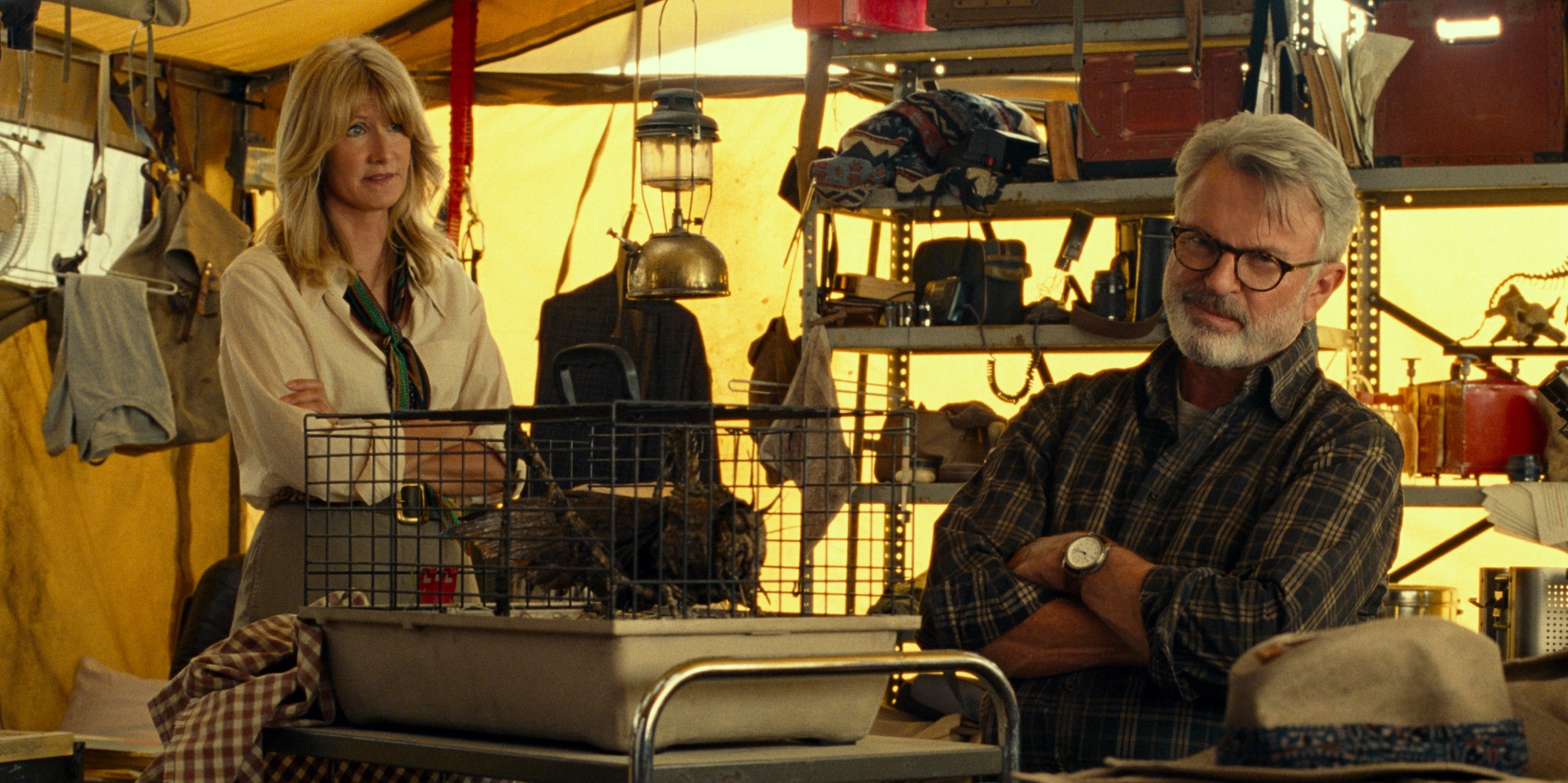‘Jurassic World Dominion’ Theory Explains Why Locusts Get More Attention Than Dinosaurs
Many critics and audiences are criticizing Jurassic World Dominion for putting the focus on locusts and taking it away from the dinosaurs. As a result, the trilogy’s big conclusion takes attention away from the big draw. One particular theory explains why Jurassic World Dominion decided to focus on locusts rather than the dinosaurs.
‘Jurassic World Dominion’ highlights locusts over dinosaurs

Jurassic World Dominion takes place four years after the destruction of Isla Nublar. As a result, dinosaurs are now roaming the globe and humankind must live alongside them. However, their presence is at times inconvenient and at other times, lethal. However, they must find a way to co-exist with these magnificent creatures.
The final franchise installment sees the return of Dr. Ellie Sattler (Laura Dern), Dr. Alan Grant (Sam Neill), and Dr. Ian Malcolm (Jeff Goldblum). They work together in Jurassic World Dominion to combat dangerous locusts that threaten the world’s food supply. The human species’ future rests in the hands of these doctors.
‘Jurassic World Dominion’ theory suggests why the movie focuses on locusts
Reddit has a specific thread to discuss Jurassic World Dominion, where they debate various topics, including locusts. In particular, a group of users questioned how a Jurassic World movie got greenlit with such a light focus on dinosaurs. Another commenter pointed out that the panned Jurassic World: Fallen Kingdom got the go-ahead, so it isn’t too surprising.
One Redditor wrote about their “conspiracy theory” as to why they focused so much on locusts in Jurassic World Dominion. It has more to do with critics and audience reactions to the previous installment, where audiences watched innocent dinosaurs sadly die on-screen. See below for their full theory:
“I mentioned it in my comment too but I have a conspiracy theory that the locusts play such a huge part because they are bugs, something that the audience sees as largely unfeeling pests, and that their en mass murder won’t generate the kind of blowback that all the dinosaur suffering in part 2 did. Like they decided ‘we’ll let them eradicate the bugs, so something still gets defeated at the end, and just sort of gloss over the fact that there’s still f***ing dinosaurs murdering people in the streets of Manhattan.'”
A response called it a “pretty good theory.” Another Redditor suggested a different theory as to why the locusts take up so much of the narrative in Jurassic World Dominion. Read on below for the second theory:
“I have a theory that they didn’t know if they could get Dern and Neill when it went into production so they basically B plotted a separate story involving them. Then when they got them on board the atypical B plot becomes the A plot because it’s a bigger deal and maybe they agreed to more screen time in the end. Because until the climax of the movie the two plots are totally separate and they’d only need all 8 on set to film the final setpieces.”
Franchise fans react to the trilogy’s conclusion
The Jurassic World Dominion Reddit sub-thread had a lot to say about the trilogy’s conclusion beyond the locusts. Redditors pointed to the fact that they found the idea of dinosaurs and humans co-existing to be interesting, which is what Jurassic World: Fallen Kingdom set up. However, they explained how it only lasts for the first 5 minutes or so. The remainder of the movie totally ignores this direction and focuses on locusts. One Redditor called it “Jurassic World: A Bug’s Life.”
Similarly, critics aren’t liking Jurassic World: Dominion very much. The film is currently sitting at a low 35% approval rating on the Tomatometer on Rotten Tomatoes.


